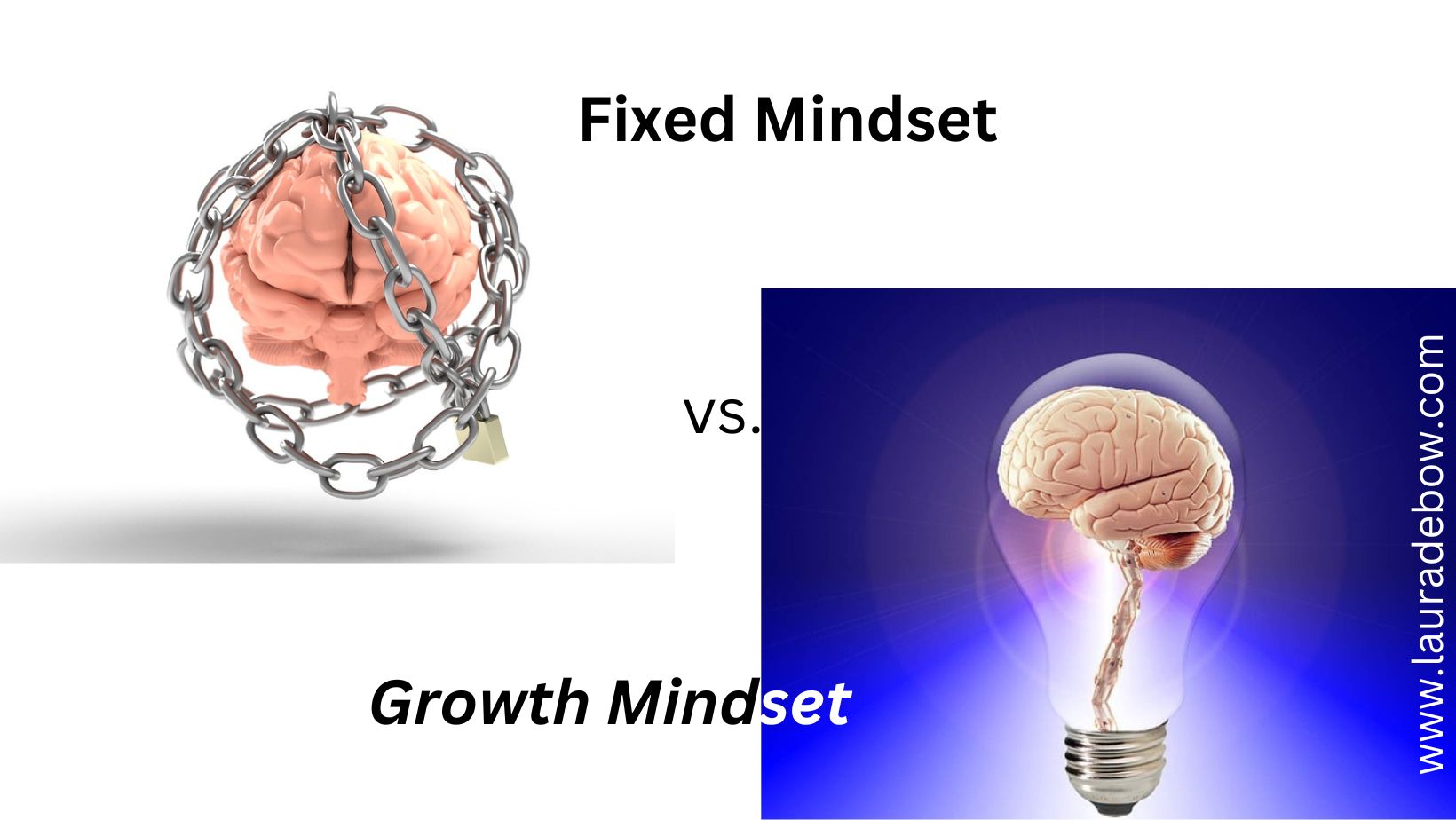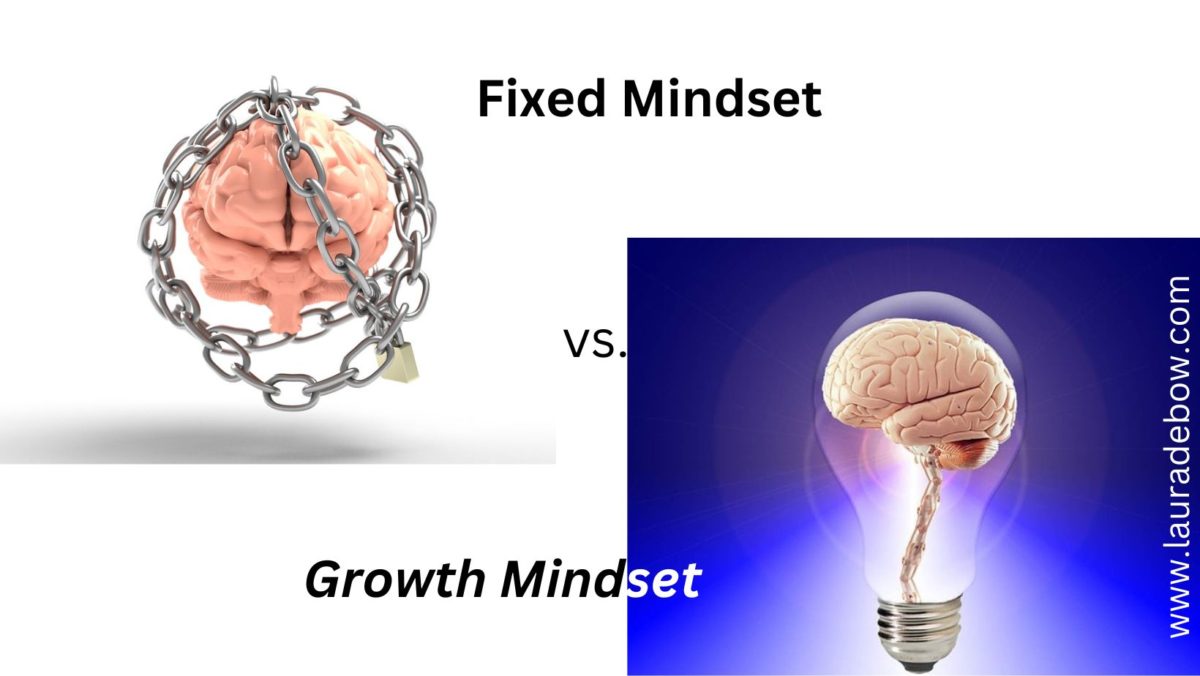
This past weekend, I took my daughter to a travel soccer tournament. Her club soccer team recently moved up a few levels, and at this showcase event, her team was scheduled to play some teams that were at least a few levels above their new rank. It was so interesting to hear the different feedback from her teammates regarding this arrangement.
Some girls were concerned they wouldn’t win any games and that the trip would be a waste of time. Others embraced the opportunity to see how our team fared against those tougher teams. I was incredibly proud to hear my own Little Bit declare that these games would be so good for their team and that by playing more challenging teams, her own team can only get better. She was actually thrilled with the opportunity.
Her attitude welcoming the challenge got me thinking about growth mindset vs. fixed mindset. I have long been interested in this idea. It saddens me to sometimes find myself falling into the fixed mindset camp, though since learning of the concept, I’ve been working to become more growth mindset oriented. One of the greatest premises about the idea is that anyone can change their mindset from fixed to growth! And even believing that is a positive move toward a growth mindset.
Fixed mindset
People with a fixed mindset believe their intelligence, talents/abilities, and personalities are fixed traits that cannot grow or change. These beliefs manifest in the following ways:
- Avoiding challenges
- Feeling intimidated or threatened by others’ successes
- Taking criticism/negative feedback as a personal attack and/or choose to ignore it instead of considering its merits
- Avoiding new experiences or stick to what they know because of fear of failure
- Surrounding themselves with people to bolster their confidence (think “yes men”)
- Focusing on the outcome and how it will affect their identity rather than enjoy and learn from the journey
- Being focused on appearing smart and will avoid error to “prove” their intelligence
- Giving up easily, especially when something grows difficult
Growth mindset
People embracing a growth mindset subscribe to the idea that the intelligence, talents/abilities, and personalities we’re born with are simply a starting place and that we can grow and develop all of these through hard work, perseverance, and challenges. These beliefs show up in these ways:
- Welcoming challenges as an opportunity to learn
- Being inspired by the success of others
- Accepting criticism as a way to learn and improve
- Embracing novel experiences with a desire to learn new things
- Cultivating relationships with people who will challenge and push them
- Focusing more on a journey or process and what they can learn from it rather than fixate on the outcome
- Using errors to grow in knowledge and understanding
- Persevering in the face of setbacks or failures
Transitioning from a fixed mindset to a growth mindset is possible if you allow yourself to be open to change and commit to it. First, you must pay attention to your self-talk. When you hear yourself gravitating toward questioning your ability, ruminating on “if only,” or defaulting to blame, you’re embracing the fixed mindset. But you have a choice.
In the moment, choose to believe you can develop and grow your abilities beyond where they currently are. Instead of focusing on “if only,” see what you can learn from the situation or consider what you can do differently next time. Instead of blaming, take responsibility, and ponder what can be learned and how you can grow from mistakes or criticism.
Reframing each negative thought with a growth mindset approach can help lead to positive action and growth. Ask yourself questions such as the following to help retrain your thinking when you’re tempted to stay in a fixed mindset:
- What can I learn from this?
- What mistake did I make that taught me something?
- Did I give it my best effort?
- Where can I get constructive feedback?
- What did I try hard at today?
- What steps can I take to help me succeed?
- What habits must I cultivate to continue developing?
- If I had a plan for success, what would it look like?
- When/where/how will I follow through on my plan?
In my writing life, I find myself struggling with a fixed mindset when I let fear of failure get a grip on me. When I find myself going there, I ask myself: “What is the worst that can happen?” Usually it’s not so bad that I allow my fear to hold me back and I push through. Sometimes, I feel overwhelmed with a task or challenge. Instead of getting stuck, I remind myself to take it one step at a time rather than letting the whole thing get the best of me. Just shifting focus makes a tremendous difference on how I approach things. Try it sometime and see if it isn’t a game-changer.
In case you’re wondering how the soccer showcase went, our team played so well! I am beyond proud of the girls and their hard work. They truly rose to the challenge and put forth great effort. Even though they ended the event with a 1-2-1 record, they really could have won any of the games. To see them gel as a team and settle into a rhythm was so fun. I cannot wait to see what these young ladies accomplish this season with the right attitude and mindset!
How would you characterize your mindset? What can you do to improve your approach to life and challenges? What is one step you will take today toward cultivating a growth mindset?

